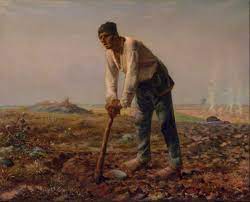An Afternoon Conversation
It was a weekday afternoon and Dad and I were conversing about America’s obsession with guns and how the 2nd Amendment is the worst written sentence in American history. We then began discussing death and our culture’s various hang ups to dignified endings of life in old age, and he quoted the entirety of Tennyson’s poem, “Crossing the Bar.”
Sunset and evening star,
And one clear call for me!
And may there be no moaning of the bar,
When I put out to sea,
But such a tide as moving seems asleep,
Too full for sound and foam,
When that which drew from out the boundless deep
Turns again home.
Twilight and evening bell,
And after that the dark!
And may there be no sadness of farewell,
When I embark;
For tho’ from out our bourne of Time and Place
The flood may bear me far,
I hope to see my Pilot face to face
When I have crost the bar.
I had never read the poem before and hearing it astonished me because it captures perfectly my sentiments about death and maybe one day from now I’ll read it, or someone will read it, or a hologram of Tennyson will read it, and then, Hart’s Cove here I come! There is no bar to cross there, but it’s the ocean all the same.
After that, Dad and I moved on to the homeless issue, which has become the chief subject of conversation whenever my family gets together.
Somehow Jesus’ parable of the Prodigal Son came up and Dad recalled that after the son squandered his inheritance on “riotous living” (King James Version) he worked in a pigpen feeding “swine.” but his employer wouldn’t feed him. Essentially, the son was homeless but when he returned he was welcomed by his father and a feast was held, something that enraged the prodigal son’s hard working brother.
I said the Prodigal Son parable didn’t really apply to the homeless because most of them probably didn’t have rich fathers to return to after losing or squandering (there is a difference) everything. Dad said that was true but the parable’s lesson was far greater than that. Jesus was suggesting that we the citizenry are collectively the father and we should welcome the return of anyone who has lost their way and become destitute or troubled.
Next up was the poet Edward Markham and Dad quoted the beginning stanza of Markham’s poem “The Man with the Hoe.”
Bowed by the weight of centuries he leans
Upon his hoe and gazes on the ground,
The emptiness of ages in his face,
And on his back the burden of the world.
Who made him dead to rapture and despair,
A thing that grieves not and that never hopes,
Stolid and stunned, a brother to the ox?
I looked it up and he was right! He was also right about the French painting of a man with a hoe had inspired the poem. The name of the painter was Millet! How had he pulled that one out?
Dad the informed me that Edward Markham was from Oregon City, my hometown. Then it flashed on me that there is a plaque outside the Oregon City library that commemorates Markham and that this poet was practically a socialist in this great soaring poem and I wish I learned about him in my youth.

